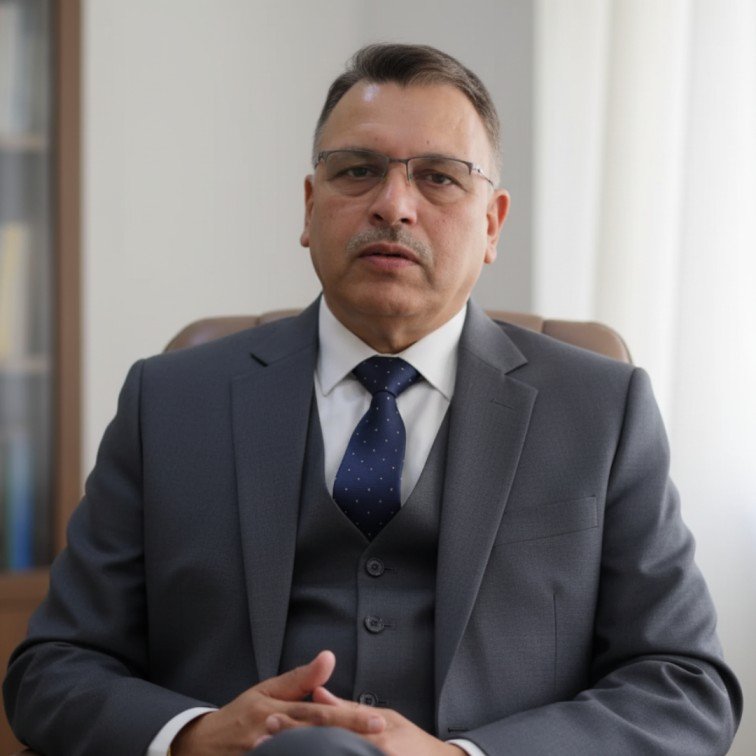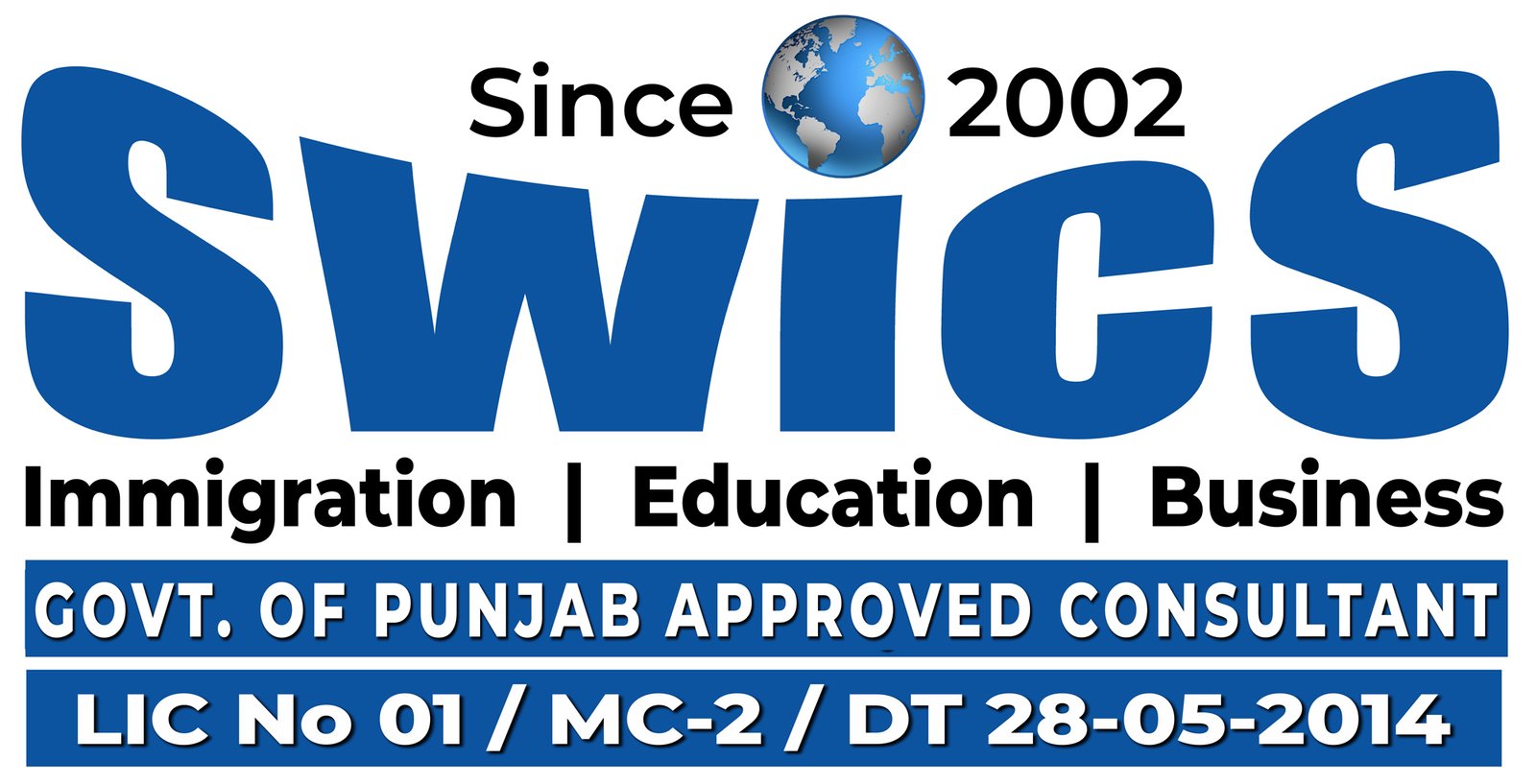Study in Germany
At SWICS Pvt. Ltd., we specialize in helping ambitious students achieve their dream of studying in Germany, one of the most affordable and prestigious higher education destinations in the world.
- Public & Private Universities
- Tuition-Free & Scholarship Opportunities
Study in Germany
At SWICS Pvt. Ltd., we specialize in helping ambitious students achieve their dream of studying in Germany, one of the most affordable and prestigious higher education destinations in the world. With more than 22 years of expertise, we connect students to public universities that are tuition-free or heavily subsidized, as well as private universities offering specialized career-driven programs.
We also provide German Language Classes (A1–B1 levels) with complete teaching and examination preparation to ensure students are fully prepared for both academic and day-to-day life in Germany.
Why Choose Germany?
Germany is a global leader in higher education, offering unmatched opportunities for international students.
- Tuition-Free Education – Most public universities do not charge tuition fees. Students only pay a small semester contribution (€100–€400).
- Scholarship Opportunities – DAAD, Erasmus+, Deutschlandstipendium, and university-specific scholarships cover up to 100% of tuition and living expenses.
- International Recognition – Degrees from German universities are globally respected.
- Industry & Research Links – Universities have strong ties with industries, research labs, and international organizations.
- Post-Study Work Rights – Students receive an 18-month post-study work visa after graduation.
- English-Taught Programs – Thousands of courses, especially at Master’s and PhD levels, are available in English.
Types of German Universities
Germany’s higher education system is diverse, catering to different academic and career goals.
1. Public Universities (Staatliche Universitäten)
- Government-funded; most do not charge tuition fees.
- Offer a wide range of Bachelor’s, Master’s, and PhD programs.
- Strong in research, academics, and global collaborations.
Examples:
Strong in humanities, natural sciences, and law.
Leading in engineering, computer science, and life sciences.
Germany’s oldest university, known for medicine, natural sciences, and philosophy.
Engineering and technology powerhouse.
Strong in arts, social sciences, and history.
2. Universities of Applied Sciences (Fachhochschulen / HAW)
- Focused on practical training and real-world applications.
- Strong industry links and mandatory internships.
- Ideal for engineering, business, technology, and applied sciences.
Examples:
Engineering, design, business.
Engineering, IT, cultural studies.
Computer science, economics, design.
Business, engineering, social work.
Business, engineering, social work.
International business and engineering programs.
3. Private Universities
- Charge tuition (€5,000–€15,000 per year).
- Offer career-oriented courses, small classes, and flexible learning.
- Examples: GISMA Business School, SRH Universities, EBS Business School.
Examples:
Business, management, and MBA programs.
Health sciences, management, engineering.
One of the oldest private business schools in Germany.
Specialized in international business and entrepreneurship.
Humanities and liberal arts.
4. Specialized Institutions
- Include art, music, theology, and teacher training colleges.
- Focused and selective programs for creative and niche fields.
Examples:
Music, performance, and conducting.
One of the largest art universities in Europe.
Music and dance programs.
Theology and social sciences.
Teacher education and pedagogy.
5. Dual Universities (Duale Hochschule)
- Combine academic learning with company-based practical training.
- Students earn while studying, gaining industry exposure.
Examples:
Germany’s leading dual university, multiple campuses (Stuttgart, Mannheim, Karlsruhe).
Combines business and technical training with company partnerships.
Dual business management programs with corporate cooperation.
Theology and social sciences.
Offers dual programs in business, health, and social sciences.
Courses & Degrees
Bachelor’s Programs
- Duration: 3–4 years (6–8 semesters)
- Credits: 180–240 ECTS
- Fields: Engineering, IT, Sciences, Business, Arts, Humanities
- Includes coursework, exams, and a final thesis/project.
- Bachelor’s programs (English-taught) in Germany
Health & Life Sciences
- Public Health
- Nursing & Healthcare Management
- Biomedical Sciences
- Nutrition & Health
- Medical Biotechnology
Engineering & Technology
- Mechanical Engineering
- Civil & Structural Engineering
- Electrical & Electronics Engineering
- Automotive Engineering
- Robotics & Mechatronics
- Computer Science
- Data Science & Artificial Intelligence
- Software Engineering
Business, Economics & Management
- International Business & Management
- Finance & Accounting
- Business Psychology
- Digital Marketing & E-Commerce
- International Tourism & Hospitality Management
- Supply Chain & Logistics
- Entrepreneurship & Innovation
Agriculture, Environment & Sustainability
- Environmental & Sustainability Studies
- Agricultural Sciences (English-track)
- Food Technology & Nutrition
- Forestry & Natural Resource Management
Natural Sciences & Mathematics
- Physics (Applied / Theoretical)
- Chemistry
- Mathematics
- Earth & Environmental Sciences
- Molecular Biology
Social Sciences, Arts & Humanities
- International Relations & Political Science
- Finance & Accounting
- Business Psychology
- Digital Marketing & E-Commerce
- International Tourism & Hospitality Management
- Supply Chain & Logistics
- Entrepreneurship & Innovation
Master’s Programs
- Duration: 1–2 years (2–4 semesters)
- Credits: 60–120 ECTS
- Offered in English and German.
- Includes advanced study, research, and thesis work.
Health & Life Sciences
- Public Health & Epidemiology
- International Health Management
- Molecular Medicine
- Biomedical Engineering
- Pharmaceutical Sciences
- Clinical Psychology & Neurosciences
Engineering & Technology
- Computer Science (AI, Data Science, Cybersecurity)
- Software Engineering & Cloud Computing
- Mechanical & Automotive Systems Engineering
- Electrical & Electronics Engineering
- Robotics & Mechatronics
- Renewable Energy Engineering
- Industrial Engineering & Management
Business, Economics & Management
- Master of Business Administration (MBA)
- International Management
- Banking, Finance & Risk Management
- Logistics & Supply Chain Management
- Digital Marketing & Brand Management
- Entrepreneurship & Innovation
- Human Resource Management
Agriculture, Environment & Sustainability
- Environmental Engineering
- Climate Change & Sustainable Development
- Agricultural Economics
- Renewable Energy & Environmental Policy
- Food Technology & Safety
- Forestry & Sustainable Resource Management
Natural Sciences & Mathematics
- Physics (Theoretical, Applied, Quantum Science)
- Chemistry & Materials Science
- Mathematics & Statistics
- Earth & Geosciences
- Computational & Data Science
- Molecular Biology & Genetics
Social Sciences, Arts & Humanities
- Global History & Cultural Studies
- International Law & Human Rights
- International Relations & Political Science
- Sociology & Social Policy
- Education & Pedagogy
- Media, Journalism & Digital Communication
- Psychology (Organizational / Clinical)
- Philosophy & Cultural Studies
Doctoral / PhD Programs
- Duration: 3–4 years
- Highly research-focused; includes dissertation and publications.
- Often funded by research grants, scholarships, or stipends.
Health & Life Sciences
- PhD in Public Health & Epidemiology
- PhD in Biomedical Sciences & Biotechnology
- PhD in Molecular Medicine & Genetics
- PhD in Pharmaceutical Sciences & Drug Development
- PhD in Clinical Research & Neurosciences
- Clinical Psychology & Neurosciences
Engineering & Technology
- PhD in Mechanical & Automotive Engineering
- PhD in Civil & Structural Engineering
- PhD in Electrical & Electronics Engineering
- PhD in Robotics & Mechatronics
- PhD in Computer Science & Artificial Intelligence
- PhD in Renewable Energy & Sustainable Technologies
Business, Economics & Management
- PhD in Business Administration & Management
- PhD in Finance, Banking & Risk Management
- PhD in Supply Chain & Logistics
- PhD in International Economics & Trade
- PhD in Organizational Psychology & HR Research
- PhD in Entrepreneurship & Innovation
Agriculture, Environment & Sustainability
- PhD in Environmental Science & Climate Research
- PhD in Agricultural Economics
- PhD in Food Technology & Nutrition
- PhD in Forestry & Sustainable Resource Management
- PhD in Renewable Energy & Environmental Policy
Natural Sciences & Mathematics
- PhD in Physics (Quantum, Astrophysics, Particle Physics)
- PhD in Chemistry & Materials Science
- PhD in Mathematics & Applied Statistics
- PhD in Earth & Geosciences
- PhD in Computational & Data Science
Social Sciences, Arts & Humanities
- PhD in Political Science & International Relations
- PhD in Global History & Cultural Studies
- PhD in Sociology & Social Policy
- PhD in Education & Pedagogy
- PhD in Media, Communication & Journalism
- PhD in Linguistics, Literature & Cultural Studies
- PhD in Philosophy & Ethics
German Education System Semesters & Structure

October – March
April – September
Students typically earn 30 ECTS per semester (~60 per year).
Most intakes are in the Winter Semester, though some programs also start in summer.
German Grading System
are usually awarded from 1.0 (excellent) to 5.0 (fail), with
some variations depending on the university or state.
University Grading Scale (Higher Education)
| Grade | Description | Meaning in English | Equivalent % (Approx.) |
|---|---|---|---|
| 1.0 – 1.5 | Sehr Gut | Very Good / Excellent | ~90–100% |
| 1.6 – 2.5 | Gut | Good | ~80–89% |
| 2.6 – 3.5 | Befriedigend | Satisfactory | ~65–79% |
| 3.6 – 4.0 | Ausreichend | Sufficient (Lowest Passing Grade) | ~50–64% |
| 4.1 – 5.0 | Nicht bestanden | Fail | Below 50% |
Note: Some universities may use decimal steps (e.g., 1.3, 1.7, 2.0, etc.) for more precision.
School Grading Scale (Secondary Education)
In German schools, the system often uses grades 1 to 6:
| Grade | Description | Meaning |
|---|---|---|
| (Sehr Gut) | Very Good | Excellent performance |
| (Gut) | Good | Above average |
| (Befriedigend) | Satisfactory | Average |
| (Ausreichend) | Sufficient | Passing |
| (Mangelhaft) | Poor | Fail (can still pass with conditions) |
| (Ungenügend) | Insufficient | Complete Fail |
Conversion into ECTS (European Credit Transfer System)
For international recognition, German grades are often converted into ECTS grades (A–F):
| German Grade | ECTS Grade | Equivalent |
|---|---|---|
| 1.0 – 1.5 | A | Excellent |
| 1.6 – 2.0 | B | Very Good |
| 2.1 – 3.0 | C | Good |
| 3.1 – 3.5 | D | Satisfactory |
| 3.6 – 4.0 | E | Sufficient |
| 4.1 – 5.0 | F/FX | Fail |
Indian & International Equivalence (Approx.)
- Since many Indian students apply to Germany, they often compare marks:
- 1.0 – 2.5 → 70% and above (First Division / Distinction in India)
- 2.6 – 3.5 → 55–69% (Second Division)
- 3.6 – 4.0 → 50–54% (Pass Class)
- 4.1 – 5.0 → Fail
Admission Requirements
- Recognized secondary school / bachelor’s degree equivalent to German standards.
- For some applicants, Studienkolleg (Foundation Year) is required.
- Proof of language proficiency:
- German Programs – TestDaF, DSH, Goethe Zertifikat.
- English Programs – IELTS, TOEFL.
- Strong academic transcripts, recommendation letters, and Statement of Purpose.
Scholarships & Funding
At SWICS, our primary focus is to connect students with scholarship opportunities.
- DAAD Scholarships – Covers tuition, living, travel, and insurance.
- Erasmus+ – Financial aid for European exchanges.
- Deutschlandstipendium – Merit-based funding of €300/month.
- University-Specific Scholarships – Grants, fee waivers, or stipends for international students.

Leadership at SWICS Pvt. Ltd.

ER.JP SINGH
MANAGING DIRECTOR
At SWICS Pvt. Ltd., our strength lies in the visionary leadership and expert team that drives our success. With more than two decades of experience in immigration.

ER.JP SINGH
MANAGING DIRECTOR
- Phone:+1 (859) 254-6589
- Email:info@example.com

Advocate Trimaandeep Singh
Legal Advisor & Immigration Expert
Advocate Trimaandeep Singh adds a powerful legal dimension to SWICS services, ensuring every client’s application is legally sound and appeal-proof.

Advocate Trimaandeep Singh
Legal Advisor & Immigration Expert
- Phone:+1 (859) 254-6589
- Email:info@example.com
Our Germany-Based Team
- Coordinates directly with German universities.
- Handles admission confirmations, enrollment, and scholarship processing.
- Provides settlement support (accommodation, insurance, part-time jobs).

SWICS Services
- Coordinates directly with German universities.
- Handles admission confirmations, enrollment, and scholarship processing.
- Provides settlement support (accommodation, insurance, part-time jobs).
German Language Classes (A1–B1)
German language training at our own institute.
- Levels Covered: A1, A2, B1
- Curriculum: Grammar, vocabulary, speaking, listening, writing, and reading.
- Exam Preparation: Goethe, TestDaF, and other recognized exams.
- Teaching Method: Interactive classes, mock tests, and real-life conversational practice.
- Outcome: Students become confident to live, study, and work in Germany.

Why Choose SWICS Pvt. Ltd.?
- Govt. Approved Immigration Experts (Since 2002)
- 22+ Years of Experience in overseas education & immigration.
- Specialized in Public Universities & Scholarships.
- Legal & Documentation Expertise for refused visas.
- Germany-Based Team for real-time coordination.
- German Language Training for complete preparation.

FAQ
Study in Germany with SWICS Pvt. Ltd.
Yes. Most public universities in Germany charge no tuition fees for both domestic and international students. Students only pay a small semester contribution (around €100–€400). At SWICS Pvt. Ltd., under the leadership of Er. JP Singh, we help students identify the best tuition-free universities so they can pursue higher education at minimal cost.
Living costs average between €850–€1,000 per month, covering accommodation, food, health insurance, and transport. Our Germany-based SWICS team helps students find affordable housing options and prepare a realistic settlement plan.
Not always. Many Bachelor’s, Master’s, and PhD programs are taught in English. However, basic German is useful for daily life and part-time jobs. At SWICS, we offer German Language Classes (A1–B1) with exam preparation to make students fully confident.
Germany uses a 1.0–5.0 scale, where 1.0 is excellent and 4.0 is the lowest passing grade. Er. JP Singh and Advocate Trimaandeep Singh ensure students understand grading equivalence so that their Indian or international qualifications are correctly evaluated.
The process includes:
- Profile evaluation
- Course & university selection
- Preparing documents (SOPs, recommendations, transcripts)
- Applying through university portals or Uni-Assist
- Receiving admission letter
- Applying for a student visa
At SWICS, Advocate Trimaandeep Singh specializes in preparing flawless documentation for maximum admission success.
Major options include DAAD Scholarships, Erasmus+, Deutschlandstipendium, and university-specific scholarships. Our SWICS experts provide customized scholarship guidance, including drafting motivation letters and applications.
Yes. SWICS Pvt. Ltd., backed by Advocate Trimaandeep Singh, is highly experienced in refusal cases. We analyze refusal reasons, prepare strong legal justifications, and refile applications to increase approval chances.
Er. JP Singh, Managing Director of SWICS Pvt. Ltd., is an Immigration Law Qualified professional from Canada and a Certified Education Agent Counsellor (ICEF Canada, PIER Australia, British Council UK). With 22+ years of experience, he specializes in education mapping, course selection, and refused visa handling.
Advocate Trimaandeep Singh (BBA LLB, LLM) is our Legal & Documentation Specialist. He ensures compliance in applications, prepares case files, and handles complex visa documentation with a strong legal approach.
Our own team in Germany coordinates with public universities, assists with admission confirmations, and provides on-ground settlement support for accommodation, health insurance, and part-time job guidance.
- Winter Semester: October – March (main intake)
- Summer Semester: April – September (limited courses)
At SWICS, we ensure timely applications so students never miss deadlines.
Yes. International students can work 120 full days or 240 half days per year. Our SWICS counselors guide students on part-time job opportunities and compliance with German law.
Graduates can apply for an 18-month post-study work visa. With job offers, they can transition to an EU Blue Card or Residence Permit. SWICS provides career counseling to help students plan settlement strategies.
Yes. Tuition at private universities ranges from €5,000–€15,000 per year, but they often have small class sizes, industry links, and career support. SWICS assists students in choosing public or private universities depending on their budget and career goals.
- Academic transcripts & degree certificates
- CV / Resume
- Statement of Purpose (SOP)
- Letters of Recommendation
- Language proficiency proof (IELTS/TOEFL or TestDaF/DSH)
- Passport copy
SWICS, under Advocate Trimaandeep Singh, ensures documentation is accurate, compliant, and embassy-ready.
Yes. SWICS runs specialized A1, A2, and B1 German classes, preparing students for exams like Goethe and TestDaF. This is handled by professional trainers with structured modules.
If a student’s 12th-grade qualification isn’t directly equivalent to German standards, they must complete a Studienkolleg (Foundation Course) before entering university. SWICS guides students through this process.
Yes. Er. JP Singh is a specialist in education mapping. He analyzes academic background, work experience, and career goals, then recommends the best course and university.
The ECTS system is used: 30 credits per semester (~60 per year). A Bachelor’s requires 180–240 ECTS, a Master’s 60–120, and PhD varies by research. SWICS explains this system to help students understand workload and eligibility.
Yes. We assist with PhD research proposals, supervisor contacts, and funding options. With our Germany-based team, we coordinate directly with universities to support doctoral applications.
Because SWICS combines immigration expertise + education counseling + legal support.
- Er. JP Singh brings global education counseling experience.
- Advocate Trimaandeep Singh ensures legal compliance.
- Our Germany-based team ensures real-time support.
This three-tier system makes SWICS unique and reliable.

